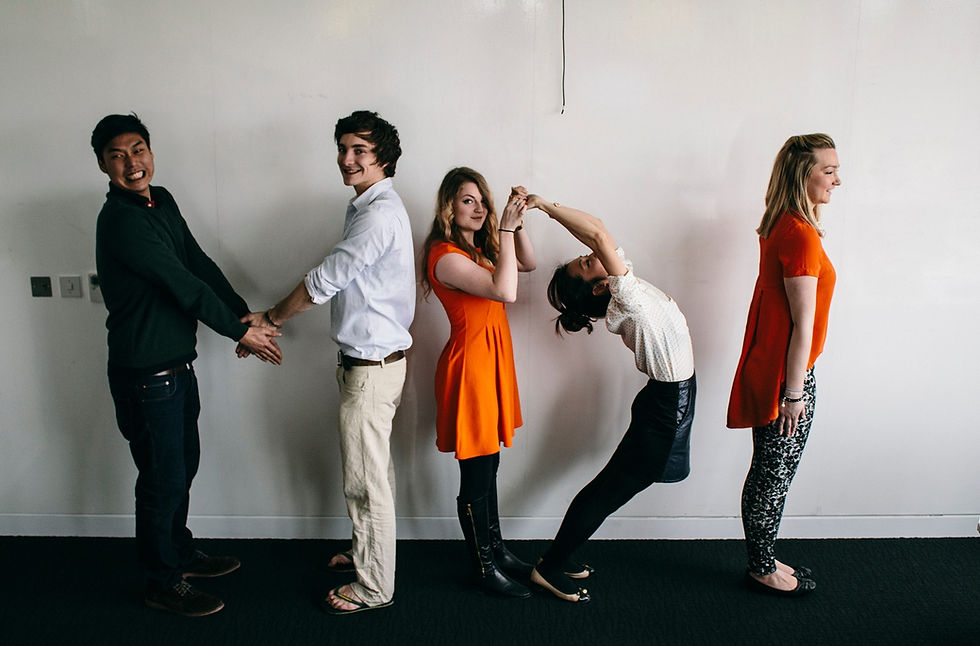SELF AND COMMUNITY
Self and community has raised my awareness this semester, I have been lucky enough to travel quite a bit and live in a different country for a while, but I never fully understood what makes us so diverse culturally, and how to use these differences to strengthen relationships, both in professional and personal life. Michael’s lecturers allowed me to truly understand the people around me and also my own deeper values. I feel guilty that I have been surrounded by so much rich culture in the form of my colleagues for a whole semester and not truly got to know some of these cultures. After living in Germany for my placement on my undergraduate I found myself feeling alien for a few months of my stay; and now understanding the cultural differences, power distances, direct vs. indirect, egalitarian vs. hierarchical, etc. has meant their behaviour has now made more sense to me. Understanding cultural differences are pivotal in today’s society; with more people moving around the world, you must be aware and respectful of the variances, and how to work to each other’s strengths effectively. After the first semester with Brenda learning about teamwork and how to work effectively with others, it was interesting to then build on that with the cultural strand. Once we had built an understanding of cultures and the academic theories aligned with it, we focused on cultural leaders and how they closely linked. The leadership style was especially useful to directly apply to my project work, and Leadership as project manager; the information learned with Michael helped shape the way I led the team, and the type of skills it truly takes to be a strong leader. All this experience and knowledge has boosted my confidence, particularly in the area of applying for international jobs; I now have a newfound appreciation for my fellow innovators on MDI and have a new level of understanding in the way they work and to have patience, as our outlooks and experiences are very different.
Understanding the Differences in Cultures
During the first few weeks of Self and Community lecturers we explored the realms of culture and developed our understanding of it. One of the first exercises we were tasked with was to create a culture tree or ‘mapping’ our culture. Laura and I created a culture tree about the UK, beginning with the part of the tree everyone sees; what do outsiders see that is different about my culture? Some of the words we chose were ‘self-critical, polite, loyal, reserved, love to queue’ as a sample. Some of the deep roots of the culture we felt were things like ‘not quick to complain, accepting of other cultures, apologetic and rich history’. To understand other cultures I needed to begin with my own; after talking through the 10 different cultures we have represented on our course (which was amazing and so insightful), I was able to get a stronger grasp on each nationality and how that might affect our working styles together. Understanding personality types and culture collectively, makes me feel more confident that I can work in a more understanding and collaborative approach with a wider range of people, I have understood our differences, played to our strengths and I believe our deliverables have been better as a result. As many of the international community of MDI have lived in the UK for a long period of time, their culture has been slightly modified in some cases and adjusted to our Anglo culture styles.

Culture as a tree - on the left Laura and myselfs version of the British culture tree.

Working with Hong Kong Polytechnic University on the Medeli project was a challenge for many reasons. Hong Kong as a culture is not very far from ours on the Cultural Clusters diagram. Although they might be close in many respects there are numerous differences in attitudes, practices and values. The UK is much more business deal focused meaning as a culture we keep professional and private lives more divided, conclusions and summaries are important and trust is something you secure by legal measures; whereas Hong Kong is more relationship focused. They are focused on creating and maintaining connections, trust is built through relationships and professional and private life is very integrated The UK is also a Low context culture, meaning we are happy to converse via methods such as email; the focus is on the task to be done and on the content of the message; and you must be clear and direct. Hong Kong is a slightly higher context than the UK, so during this project we needed to find ways of communicating other than email. We Skyped with our group on a number of occasions as this was a slightly higher context method, to ensure we were completely clear on what was expected of each team. Breaking down the individual traits of a culture through the GLOBE theory helped me better understand how to effectively work with HKPU. The level of detailed analysis is far superior to any other study in my view. Having a better grasp on a culture I had never visited before helped immensely when working directly with them, and I was more comfortable working with them.
The UK sits within the Anglo category whereas Hong Kong sits within the Confucian Asia catagory
Leadership Role within Semester two
Looking to the leadership strand of the module, I had the opportunity in the final project with Unilever to be project manager. This was a great chance for me to test the theories learnt in the Self and Community lessons on a live project. The key to success for a leader is to be recognized and accepted as a leader, within this project I was voted to be the PM, which meant there was already an acceptance of my role within the cohort.
‘We define leadership as the process of being perceived by others as a leader.’
(Lord & Maher 1991)
Leading a cohort in this situation is difficult as there is a level of expectation from different individuals from the group, but by clarifying these expectations from the beginning creates a good connection of trust and honesty between the leader and the team. Implicit leadership theory dimensions are beliefs and assumptions about the characteristics of effective leaders, by upholding these characteristics that are similar throughout all the cultural parties involved such as; being team-orientated, participative and humane, I could create a successful team that produced a high standard output.
Summary of Learning
Throughout the second semester I worked with a variety of different cultures and people from different backgrounds, having this opportunity is extremely valuable for my future as an international multidisciplinary professional. During the last few months however, I have been able to identify the differences within cultures and leadership, but it has lead me to realize that what is expected of you as a professional in industry is not dissimilar in different parts of the world. The characteristics that make a good leader are fundamentally the same and the cultures of those around me still carry the same values. Being honest and true to your own culture and values is more important than trying to adopt habits that are not reflective of you. Embrace but do not change your core values is something I will endeavour to take forward into my further professional life, but having cultural awareness is the key to success.




